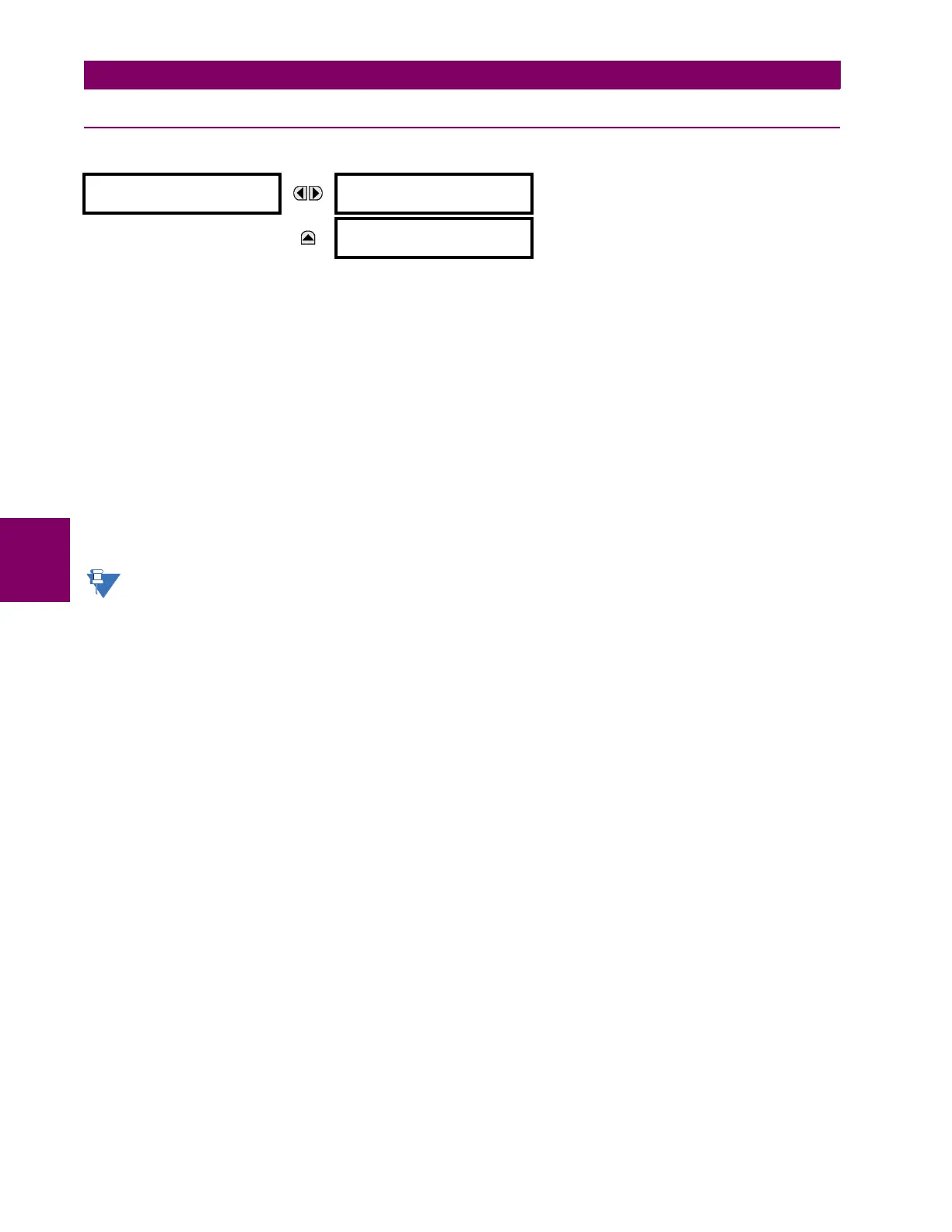5-264 L30 Line Current Differential System GE Multilin
5.10 TESTING 5 SETTINGS
5
5.10TESTING 5.10.1 TEST MODE
PATH: SETTINGS TESTING TEST MODE
The L30 provides a test facility to verify the functionality of contact inputs and outputs, some communication functions and
the phasor measurement unit (where applicable), using simulated conditions. The test mode is indicated on the relay face-
plate by a Test Mode LED indicator.
The test mode may be in any of three states: disabled, isolated, or forcible.
In the “Disabled” mode, L30 operation is normal and all test features are disabled.
In the “Isolated” mode, the L30 is prevented from performing certain control actions, including tripping via contact outputs.
All relay contact outputs, including latching outputs, are disabled. Channel tests and phasor measurement unit tests remain
usable on applicable UR-series models.
In the “Forcible” mode, the operand selected by the TEST MODE FORCING setting controls the relay inputs and outputs. If the
test mode is forcible, and the operand assigned to the TEST MODE FORCING setting is “Off”, the L30 inputs and outputs oper-
ate normally. If the test mode is forcible, and the operand assigned to the TEST MODE FORCING setting is “On”, the L30 con-
tact inputs and outputs are forced to the values specified in the following sections. Forcing may be controlled by manually
changing the operand selected by the
TEST MODE FORCING setting between on and off, or by selecting a user-programma-
ble pushbutton, contact input, or communication-based input operand. Channel tests and phasor measurement unit tests
remain usable on applicable UR-series models.
Communications based inputs and outputs remain fully operational in test mode. If a control action is programmed
using direct inputs and outputs or remote inputs and outputs, then the test procedure must take this into account.
When in “Forcible” mode, the operand selected by the
TEST MODE FORCING setting dictates further response of the L30 to
testing conditions. To force contact inputs and outputs through relay settings, set TEST MODE FORCING to “On”. To force con-
tact inputs and outputs through a user-programmable condition, such as FlexLogic operand (pushbutton, contact input,
communication-based input, or a combination of these), set
TEST MODE FORCING to the desired operand. The contact input
or output is forced when the selected operand assumes a logic 1 state.
The L30 remains fully operational in test mode, allowing for various testing procedures. In particular, the protection and
control elements, FlexLogic, and communication-based inputs and outputs function normally.
The only difference between the normal operation and the test mode is the behavior of the input and output contacts. The
contact inputs can be forced to report as open or closed or remain fully operational, whereas the contact outputs can be
forced to open, close, freeze, or remain fully operational. The response of the contact input and output contacts to the test
mode is programmed individually for each input and output using the force contact inputs and force contact outputs test
functions described in the following sections.
The test mode state is indicated on the relay faceplate by a combination of the Test Mode LED indicator, the In-Service LED
indicator, and by the critical fail relay, as shown in the following table.
SETTINGS
TESTING
TEST MODE
FUNCTION: Disabled
Range: Disabled, Isolated, Forcible
MESSAGE
TEST MODE FORCING:
On
Range: FlexLogic operand
